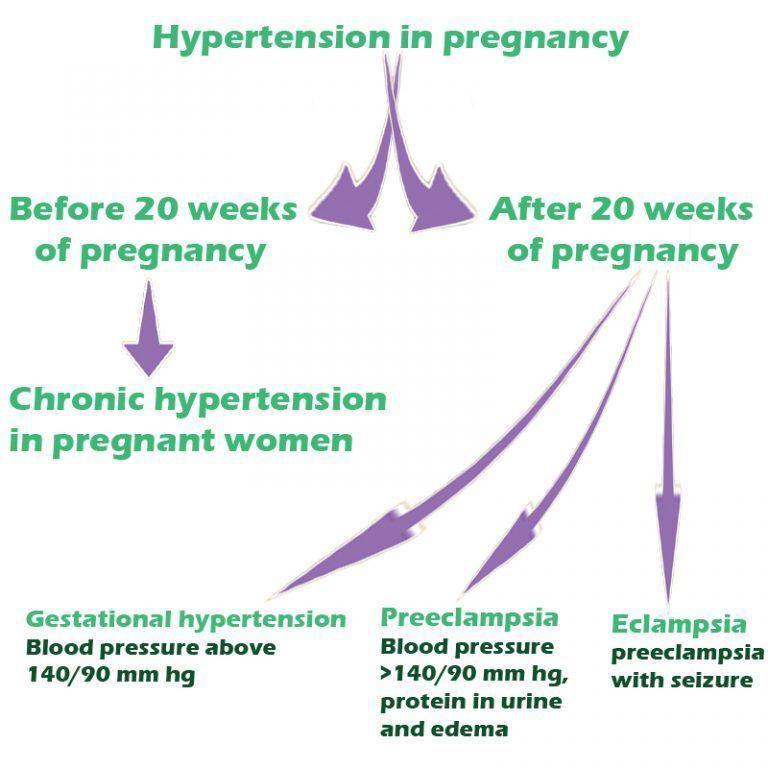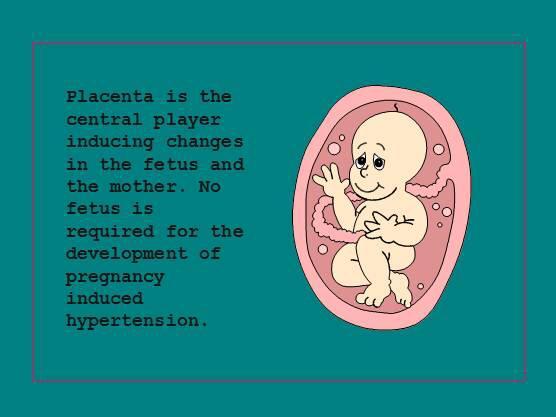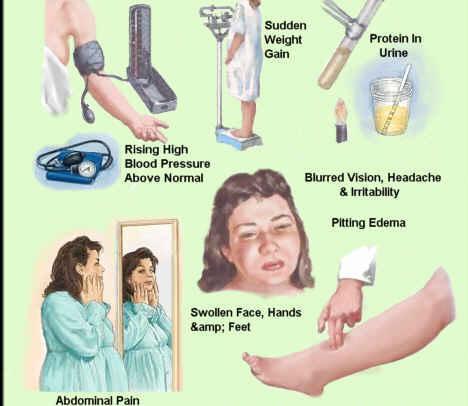Pregnancy-induced hypertension (PIH): is a condition characterized by high blood pressure (more than 140/90 mmHg for 3 consecutive times) during pregnancy with or without proteinuria emerging after 20 weeks of pregnancy.
Gestational hypertension (GH): is diagnosed in women whose blood pressure reaches ≥140/90 mmHg for the first time during pregnancy (after 20 weeks gestation), but without proteinuria.
Preeclampsia (PE): PIH / Pre- Eclampsia is a condition that typically occurs after 20 weeks of pregnancy. It is a combination of:
Eclampsia (E): Eclampsia is defined as the onset of convulsions in a woman with Pre eclampsia that cannot be attributed to other causes. The seizures are generalized and may appear before, during, or after labor.
Pre – Eclampsia as a Hypertensive Disorder of Pregnancy

Hypertension in pregnancy
The exact cause of PIH / Pre- Eclampsia is not understood.
Although central to its development is believed to be the defective development of small arteries ( blood vasculature ) in placenta .(impaired trophoblastic invasion of the maternal spiral arteries and their conversion from narrow muscular vessels to wide non-muscular channel in placenta )

Causes of Pregnancy-Induced Hypertension

Symptoms of severe Pre-Eclampsia

Pregnancy induced hypertension signs & symptoms
Salt Restriction.
This information aims to helps you make the best decision regarding your care. It is not meant to replace advice from a doctor about your own situation.